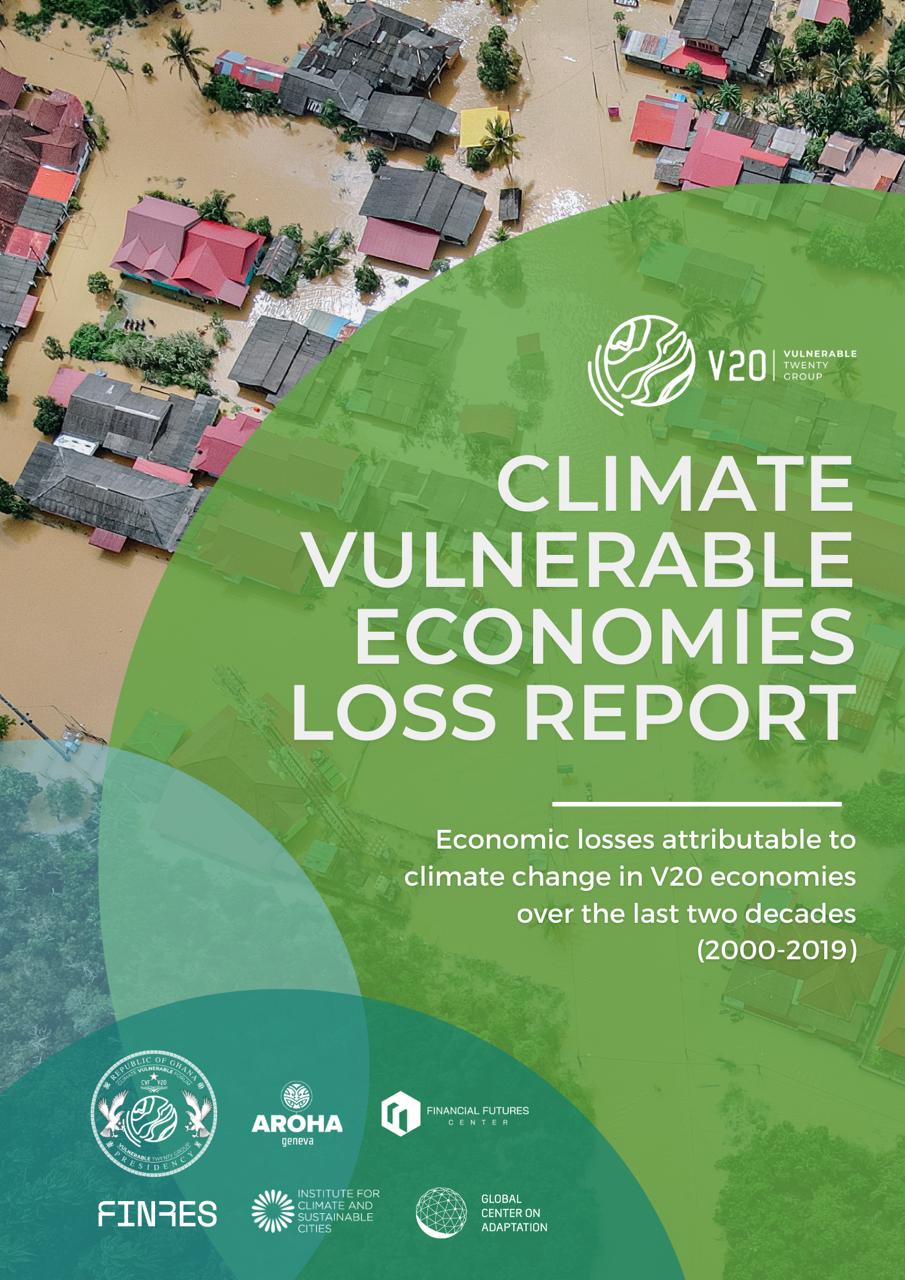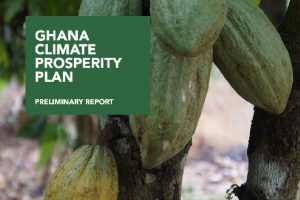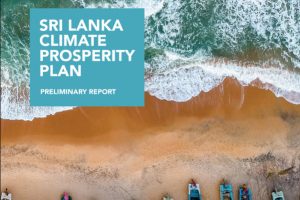Climate Vulnerable Economies Loss Report
Key findings of the June 2022 V20 report on economic loss and damage:
- Climate change has eliminated one fifth of the wealth of the V20 over the last two decades: initial evidence shows that the V20 would have been 20% wealthier today had it not been for climate change and the losses it incurred for poor and vulnerable economies
- in aggregate dollar terms, V20 economies have lost approximately US$ 525 billion because of climate change’s temperature and precipitation patterns affects
- For the most at-risk countries (10% of worst affected V20 economies), economic losses due to climate change are estimated to exceed half (51%) of all growth since the year 2000 (2000-2019): the most at-risk of the world’s most climate vulnerable nations would be twice as wealthy today were it not for climate change
- Economic losses cut GDP growth in the V20 by one full percent each year on average (minus 0.9% to the percentage of growth which averaged 3.7% in 2019 across the V20)
- The year-to-year reduction in GDP per capita growth attributable to climate change represents one quarter (25%) of the actual average annual economic growth of the V20 economies today (2019); for the 10% most at-risk V20 members the climate change attributable losses to annual growth already significantly exceed the total actual average GDP growth rate (of 0.38% per year, 2015-2019)
- Nearly all V20 economies have already warmed to mean temperatures that are far beyond what would be optimal for generating economic growth, and thereby instead incur economic losses – additional warming will only carry V20 economies further from the optimum, greatly increasing the risks of losses in the future
- Given warming is set to progress to within 1.5ºC in the next decade regardless of further mitigation action, even as adaptation accelerates economic losses would continue to increase. Adaptation needs to accelerate at a phenomenal rate both to prevent loss and damage at current levels, as well as to offset the growth in economic losses and damage that will be generated as temperatures continue to rise with hydro-meteorological extremes becoming more pronounced in parallel
- Because the estimated economic losses due to hydro-meteorological extreme events are higher in the last two decades than the previous two decades, the world’s most vulnerable economies are also not adapting fast enough to cope with weather extremes of the changing climate as it currently stands
- Analysis presented in this report provides initial evidence that international support supplied to V20 economies affected by hydro-meteorological extremes can diminish the negative macro-economic effect that would otherwise have prevailed, underscoring the importance of funding for loss and damage
SHARE ON
Related reports
22
Jul
WORLD BANK SHOULD COURSE-CORRECT FOR MORE FLEXIBLE CAT BOND TRIGGER CONDITIONS IN THE WAKE OF JAMAICA’S EXPERIENCE WITH HURRICANE BERYL
INSIGHTS: FINANCIAL PROTECTION
WORLD BANK SHOULD COURSE-CORRECT FOR MORE FLEXIBLE CAT BOND TRIGGER CONDITIONS IN THE WAKE OF JA...
17
Apr
V20 Debt Review (2nd Edition): An account of debt in the Vulnerable Group of Twenty
Key takeaways
• The V20’s total external public and publicly guaranteed debt amounts to $946.7 billion.
• External debt ...
02
Dec
GHANA CLIMATE PROSPERITY PLAN
This is the Preliminary Report of Ghana’s Climate Prosperity Plan. This version aims to present to the international and national ...
07
Nov
SRI LANKA CLIMATE PROSPERITY PLAN
This Preliminary Report presents Sri Lanka’s Climate Prosperity Plan: a national investment strategy to carve a pathway towards pr...






